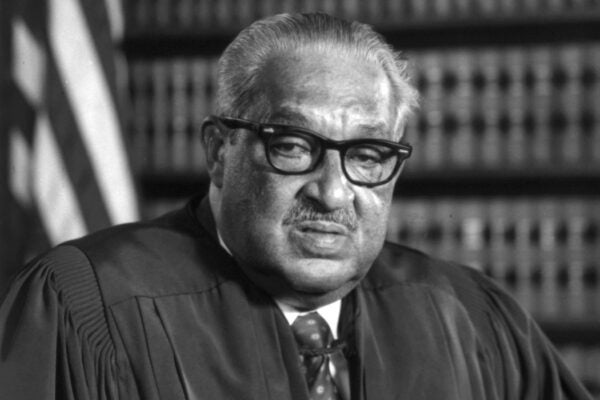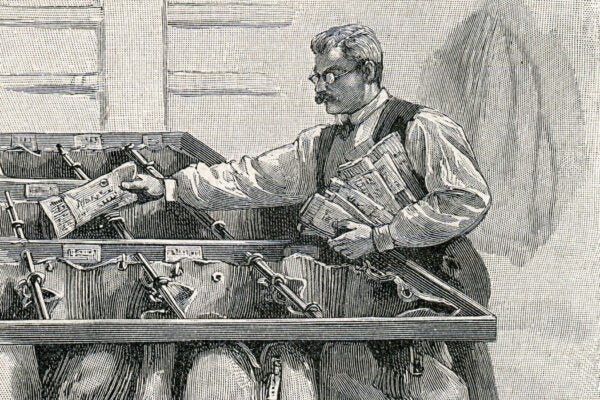Marbury v. Madison: Annotated
Justice John Marshall’s ruling on Marbury v. Madison gave the courts the right to declare acts and laws of the legislative and executive branches unconstitutional.
How Mail Delivery Has Shaped America
The United States Postal Service is under federal scrutiny. It’s not the first time.
Thurgood Marshall
In a speech marking the bicentennial of the US Constitution, Marshall argued that its framers intentionally inscribed slavery into the American economy.
The Post Office and Privacy
We can thank the postal service for establishing the foundations of the American tradition of communications confidentiality
The Annotated Oppenheimer
Celebrated and damned as the “father of the atomic bomb,” theoretical physicist J. Robert Oppenheimer lived a complicated scientific and political life.
Teaching LGBTQ+ History: Queer Women’s Experiences in Prison
This instructional guide is the first in a series of curricular content related to the Reveal Digital American Prison Newspaper collection on JSTOR.
The Voting Rights Act 1965: Annotated
The passing of the Voting Rights Act in August 1965 prohibited the use of Jim Crow laws and discriminatory tests to disenfranchise Black voters.
St. Patrick’s Day in Prison
Offhand references to St. Patrick’s Day showcase broader humor, humanity, and history in the American Prison Newspapers collection.
White Shoes, WASPs and Law Firms
Law firms founded on Protestant identity necessitated the creation of firms that would hire those shut out by WASP gatekeeping.
What Is Critical Race Theory?
Critical race theory has become a focus of conservative legislation, often with little understanding of its meaning and history.









